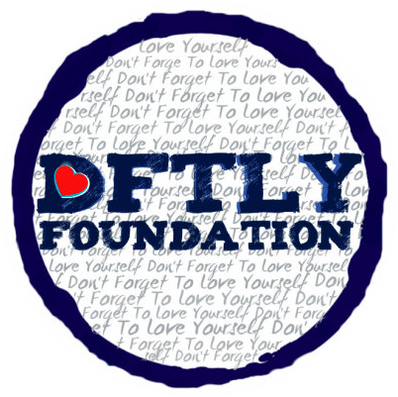learning how to waitRecently, I have spent a lot of time contemplating patience: What it means, the ways it is tested, and the ways it is improved. Very simply, patience is the ability to wait without complaint. And very honestly, that is not something at which I inherently excel. Objectively, I have a lot of patience when it comes to small things: I don’t mind getting stuck in long lines, I can remain at-ease in stand-still traffic (that’s actually when my best car-dance choreography makes an appearance), and I can stay calm while groups of toddlers scream and throw crayons at my head (side note: how is their aim always so good when their coordination is so terrible?). But with the big things in life, my capacity for patience takes a steep nose-dive. I can wait, I just haven’t quite mastered the “without complaint” caveat. I am not yet where I want to be financially, emotionally, physically, or romantically, and I’m not very patient about the time that it’s taking to improve each situation. I complain about my job(s), I complain about my depression, I complain about my body, and even though I’m still not sure if and when I'll be ready for a relationship, I do complain about how damn hard adult relationships are. Therefore, going strictly by definition, I am most definitely not a patient person. For me, patience is a veritable challenge: one I want to learn how to conquer. I have a strong desire to do better, so I started thinking about what exercising patience would look like in my life. I quickly understood that the opposite of complaining while waiting for what I don’t yet have would mean being grateful for what I currently do have. I have a strained bank account, but I am grateful that what I have is enough to take care of my needs and self-finance new music. I have a brain that is pre-dispositioned towards depression and dark, but I am grateful that every day it still fights to find the joy, humor, and light in life. I have a body that jiggles in places I wish it didn’t, but I am grateful that it still gets me from point A to point B with relative ease, and that I am getting stronger every day. And I have a history of failed relationships, but that is because I have a deep resolve to never settle for less than what I deserve, and I am grateful to myself because I know, one day, it will pay off. Practicing gratitude counters my tendency towards impatience by forcing me to live in the present moment, which is a concept I desperately need to internalize. Philosopher Lao Tzu once stated: “If you are depressed you are living in the past. If you are anxious you are living in the future. If you are at peace you are living in the present.” As someone who suffers from both depression and anxiety, this is an important, and enlightening, lesson. In addition to recognizing my own impatience, I have also gotten better at recognizing the root of my anxiety. It is always due to my mind shifting towards the future. I imagine things that have not yet taken place, and then I worry incessantly about them until I can’t sleep, or I can’t make a decision, or I can’t bring myself to go to the party, or I have a panic attack. But the basis of that anxiety stems from an irrational fear of a future that hasn’t yet happened, and a fear of things not working out the way that I’ve planned (attn. self: things never do, and that’s ok). What’s not ok is letting that fear hold me back from pursuing the things I love, and the dreams that I know I’m capable of reaching. What’s not ok is letting that fear make me impatient rather than grateful. I am determined to carry this lesson with me through the new year and through the next chapter of my music career. I have been trying to release music for about four years now and, in that time, I have doubted myself constantly. I have let the obstacles I’ve faced make me anxious, fearful, and impatient. Now, as I’m on the precipice of finally releasing new music to the world, and consequently putting myself out there, that anxiety and fear seems all-consuming at times. But when I focus on gratitude, rather than the uncertain future, it reminds me why I am a musician in the first place, and slowly the anxiety dissipates. I don’t write or perform music for validation from others. If I really think about the reasons why I do it, I realize that I don’t actually need people to like my music at all (although it’s really nice when they do). When I come back to the present moment, I understand that the reason I continue to write, record, and (finally) release music is because it’s an extension of my personality, and it comes as natural to me as breathing. If I ever stopped, I would lose a huge part of myself, and I would lose my ability to make sense of the world. And that has nothing to do with anyone else’s opinion of me. With that said, I know that fear and anxiety will still fill me in the moments before I send my song off to be released. I am going to be thinking about the people who will listen: Will they like it? Will they hate it? Will they share it? Will they post mean things about me online? Probably all of the above. But, when my mind starts to wander to that 45-year-old man who never pursued his own dream and who now copes with the dissatisfaction in his life by posting mean comments to discourage those who actually are pursuing theirs, I am going to catch myself. I am going to breathe deeply and remind myself in that moment that I am not doing this for anyone else. I am doing it for me, because it is who I am and what I believe I am meant to do with my life and with my talent. And on that note, I will not be afraid anymore to call myself talented. I will not be afraid to call myself brave. I will be grateful for that talent and for that courage. And then, I will click the mouse and release my song. It will all be very anti-climactic. Yet, it will be one of my most internally powerful moments. In my mind, impatience, fear, and anxiety go hand-in-hand. Patience means trusting that things will eventually work out in the right way and in the right time, even if obstacles appear and the finish line is not yet visible. Anxiety means that fear has crept in and I no longer trust that things will turn out alright in the end. Living in the present moment by practicing gratitude is the antidote. So, here’s to 2018: the year of being afraid but doing it anyway. I hope you take a chance on yourself this year and that when you start to feel anxious or afraid of the future, you instead think about how much in your present life you have to be grateful for. And I hope that thought makes you brave. (and patient). Don’t forget to love yourself, Ali
follow Ali:
0 Comments
trovare la gioia (or, how to train your brain to be happy)People are often surprised to find out I have tattoos. I’m not sure what makes it so surprising, but I have some theories. It might have something to do with the fact that: a.) I look like I’m seventeen b.) I dress like a modest kindergarten teacher c.) I tend to spontaneously burst out in song and dance, like a child d.) Due to factors a, b, and c, I give off a “sweet and innocent” vibe, which I tenderly refer to as “the polka-dots and glitter” phenomenon. To exemplify this point, a few weeks after we first met, one of my friends told me that she assumed I spent all of my free time chasing butterflies and picking flowers. I don’t, I promise. Although I guess it proves that I tend to strike people as the skipping through fields type (ok, I do actually do that sometimes), and not the tattoo type. But hey, I am a millennial after all. And Generation Y tends to express itself by permanently scarring its bodies with ink. But this blog post is not about tattoos per se, rather the meaning behind the tattoo on my left wrist. In a fancy-ish script, it reads “Trovare la Gioia,” which in Italian translates to “Find the Joy.” And when people ask about it, that’s usually the extent of the explanation I give. But that’s not the extent of its meaning. Because if I’m going to mark my body with something that will never come off, it sure as heck better be something that resonates so deeply within my soul that at age 83, when it’s all wrinkly and hard to read, I’m still glad I chose to get it. Needless to say, “Trovare la Gioia” has that power. And because I’m a writer by nature, I of course have a long-winded story to explain why. At age sixteen, I was diagnosed with clinical depression. I don’t typically tell this to someone I've just met who just happened to ask about my tattoo because if someone has never experienced depression first hand, it is extremely difficult to understand exactly what it is or does. And trust me, I cannot over-exaggerate that statement. There is such a stigma surrounding depression and so many unfair stereotypes that if I’m not careful I will end up writing a 20 page rant. So, I’ll save that for another post and just simply say this: depression sucks. 24/7. Back to the story: Depression defined my late teens and very early twenties, and like a hole that you cannot crawl out of, I honestly thought I would never be free. When you are clinically (as opposed to situationally) depressed, you can’t see light or hope in anything. You become so haunted by the depression that life becomes this huge daunting picture in which you get lost in shades of grey. Life is overwhelming. Life is terrifying. Life is exhausting. And so to cope with all of this, your brain numbs everything until you cease feeling at all. No highs. No lows. No joy. Luckily, my father is a wise man. Even though he couldn’t wholeheartedly understand what I was feeling, he wholeheartedly wanted me to feel. He knew I couldn’t find joy if I kept looking at the big picture. He knew I needed to start smaller. And so he used to tell me to take one day at a time. Then, each day, find one small minuscule thing that I could find joy in. Now, I am an extremely stubborn creature and I therefore do not heed my parents’ advice often, but places of desperation tend to make you try things you normally wouldn’t. And so each day, I would force myself to be happy about one small thing. And then something strange happened. One small thing turned into two. Two turned into four. And before I knew it, I was finding happiness in more and more things. I was by no means out of the hole, but at least I was climbing. I was feeling. I was finding the joy. And so the “Trovare la Gioia” written in bold on my left wrist is a permanent reminder that no matter how bad things seem, no matter how dark things get, there is always something to find joy in, even if that something seems small and insignificant. The reason I bring all of this up (other than I really wanted to get a second blog post in for January and this is the last day of the month, oh hey procrastination, we meet again) is because depression is as stubborn as I am. It is something that, while you can slowly crawl out of and learn to function with and beat down again and again and again, will never completely go away. I would estimate that around four years ago is when I first started feeling like I had depression under control. But I have good days and I have bad days, and it’s going to be something I battle for the rest of my life. Luckily, I’m surrounded (mostly) by people who understand that. And I have never been as low or as far down as I was in those first few years of the diagnoses. Until now. This is not meant to be a pity-seeking post. This is meant to be a reality post. Because depression is a reality for a lot of people, and those people are misunderstood and name-called constantly. So no, I am not seeking attention. I am seeking to educate. My brain does not work the way a “normal” (I hate that word) brain does. It will always be leaning towards depression, and if I’m not actively working against the gravitational pull, it will inevitably suck me back in. These past two months have proved that. But while I am in a mental place similar to that of my sixteen year old self, I am lucky enough to have a little more maturity, wisdom, and life experience than she. I can look at things, including my mental state, more objectively. Which brings me back to my left wrist and the message I paid someone to scar me with: It is now a precious tool that I am re-learning how to use. I am re-training my brain to find happiness. Happiness cannot be situational. It has to start from inside, where life circumstances can never touch or mar it. It’s not something you attain, rather something you grow. So that is what I am doing: growing happiness by training my brain to find the joy in the smallest things. For example: Life Circumstance: crutches are really annoying and incredibly painful and extremely frustrating and just overall very time-consuming. Trovare la Gioia: with crutches, I always know what to do with my hands (anyone who knows me knows that this is a really big pro). I found the joy in something small. And tomorrow, I’ll find some more. For anyone who’s going through a rough time, I empathize. And I truly hope you can find the joy in something small today and every day. Because sometimes the small things can end up making the biggest impact. Trovare la gioia (and DFTLY), Ali
follow Ali: hope - and why we should talk about difficult topicsHope is a powerful, powerful thing. From individual hopes for the future to idealistic hopes for humanity, people often talk about the things that they hope will happen. It’s easy to talk about hope because it represents the possibility of change. It is a spark of light that can illuminate even the dimmest of places. But no one likes to talk about what happens when that hope seemingly disappears. Because, if hope is light, then the absence of that light is darkness. It is depression. And talking about depression makes people uncomfortable. My child psychology class last semester covered depression for exactly one half of one class period. Comparatively, we discussed a newborn baby’s sleep cycle and crying patterns for two weeks. Now, I’m not trying to take anything away from the legitimacy of learning about neonatal care, but the topic isn’t exactly pertinent to my life at the moment. Needless to say, I was frustrated when, as we got to the topics I was truly interested in, the ones I really, really wanted to talk about, they were rushed through and brushed over in about twenty five minutes. Eating disorders, self-harm, depression, and suicide; Devoting such a short amount of time to the discussion of these issues does nothing to combat the innumerable fallacies and misinformation that surround them. And unfortunately, a lack of discussion leads to the development of false stereotypes, misguided judgements, and unfair labeling. For example, the notion that a person who struggles with an aforementioned disorder is “weird”. During our brief class discussion about self-harm, a girl in the back of the class, who had a habit of commenting on everything the professor said, raised her hand and proceeded to tell the rest of us about a girl she knew in high school who, as she put it, “did that cutting thing and it was so weird”. My classmate talked about the girl as if she were a circus attraction, one that the whole school treated as a pariah. I was boiling. Self-injury is not “weird,” it is a mental disorder. Had my classmate understood the depth of the disorder, or the emotional pain and shame that goes with it, she would have chosen different words to describe it. She also would not have assumed that the girl she knew in high school was the only one suffering with/from the desire to self-mutilate. In fact, I would be willing to bet that there were multiple students at her school who struggled with self-destructive thoughts, patterns, and behaviors. That’s because self-harming, eating disorders, and depression are unfortunately so prevalent among adolescents. Yet, because there is a sense of shame that surrounds them, they’re rarely discussed. Consequently, their prevalence is grossly underestimated. Keeping quiet about them just feeds the behaviors, but no one wants to talk because they don’t want to be judged. They don’t want to be ostracized or labeled as weird. They don’t want to be the subject of gossip. It personally took me a long time to learn how to talk about my own struggles. I spent so long feeling alone, like no one would understand what I was thinking or feeling, and so I bottled up everything. But as I began to be more open, I found more and more people who were dealing with similar things. The realization that I wasn't alone became a source of hope. But so many people don’t have that reassurance and, as a result, they keep everything inside until they can’t handle it any more. Until the darkness consumes them and blocks out all the hope that they’re not alone, that others have been where they are, that others have faced the same things they are facing and have healed. My Facebook newsfeed has been blowing up recently with articles about suicide. All of the victims have been so young and all seemingly had so much going for them. But they all lost hope that things would get better. I can’t pretend to know the circumstances or motivations behind each of these victim’s deaths, but I do know that even the littlest bit of hope can help someone hold on. That’s why we shouldn’t be afraid to talk about our struggles. Because if no one ever shared their story, there would be no hope for healing. I hope someday soon there will be more educated discussions about these kinds of difficult topics, and I hope that those suffering with these disorders will feel less shame and more acceptance. Especially more self-acceptance. I hope. DFTLY, Ali
follow Ali: |
Details
Archives
September 2020
Categories
All
|




 RSS Feed
RSS Feed